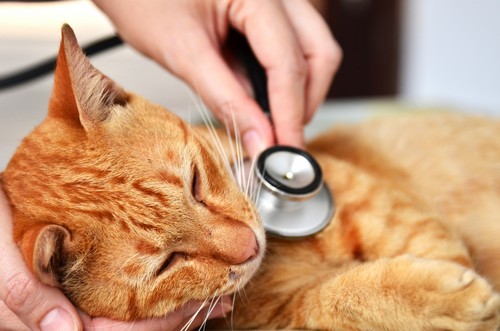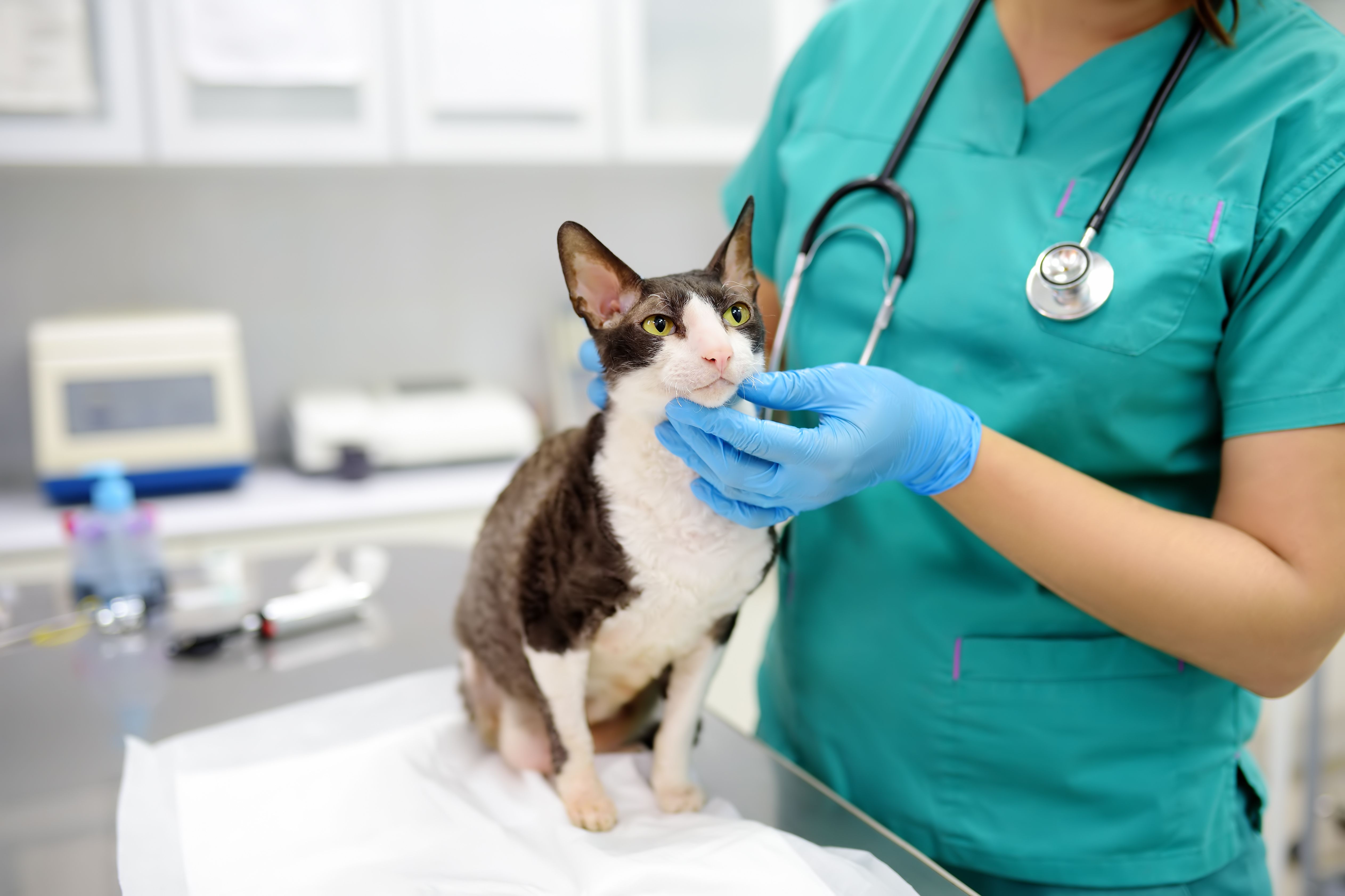How a Veterinary Specialty Hospital Can Cure Your Pet's Ailments With Advanced Techniques
Veterinary specialty hospitals play an important duty in attending to complex wellness issues in family pets. They utilize innovative techniques and technologies that enhance medical diagnosis and treatment. With access to specialized solutions, pet owners can find tailored remedies for their pets' conditions. This increases crucial questions regarding the specific approaches utilized and the advantages they supply. Comprehending these aspects can notably affect a family pet's healing journey.
Comprehending the Role of Veterinary Specialty Hospitals
Although medical care veterinarians provide crucial solutions for pet wellness, vet specialty hospitals play a critical duty in attending to complex clinical problems that need advanced diagnostics and therapy. These facilities are furnished with specialized innovation and skilled experts who focus on details areas of vet medication, such as neurology, oncology, and cardiology.
Veterinary specialty hospitals assist in a joint strategy, often operating in conjunction with a pet's key veterinarian to create detailed care plans. They give accessibility to innovative imaging techniques, such as MRI and CT scans, which are not commonly available in basic facilities. Additionally, these hospitals provide critical care unit for critically ill animals, making certain continuous surveillance and support.
Specialized Services Used by Veterinary Specialists
Veterinary experts supply important services that improve family pet healthcare, particularly through sophisticated diagnostic imaging strategies. These devices make it possible for exact analyses of intricate medical problems, bring about extra reliable targeted therapy plans. By integrating these specialized services, veterinary hospitals can significantly enhance client end results and total health.
Advanced Diagnostic Imaging
Advanced analysis imaging plays an essential duty in modern vet medicine, enabling experts to obtain thorough understandings right into an animal's health. Techniques such as X-rays, ultrasound, calculated tomography (CT), and magnetic resonance imaging (MRI) allow vets to picture internal frameworks without intrusive treatments - Learn More. These sophisticated imaging modalities aid in diagnosing a selection of problems, from growths and fractures to body organ irregularities. By offering clear pictures, they improve the accuracy of analyses, which is crucial for effective therapy planning. Additionally, specialized veterinary radiologists interpret these pictures, guaranteeing that refined problems are not neglected. Ultimately, advanced analysis imaging contributes in delivering considerable care, as it enables early discovery and intervention in a family pet's medical concerns

Targeted Therapy Plans
Targeted therapy plans are essential for resolving the specific wellness needs of animals, making certain that each animal gets personalized treatment tailored to its special problem. Veterinary specialists develop these strategies based upon complete analyses, consisting of advanced diagnostic imaging and laboratory tests. By focusing on the specific pet dog's diagnosis, age, way of living, and type, experts can prescribe reliable therapies, varying from medicine modifications to surgical treatments. These plans also incorporate follow-up treatment and checking to track the pet's progression and make required modifications. This method promotes suitable outcomes and enhances the overall quality of life for pet dogs dealing with complicated health and wellness obstacles. Eventually, targeted treatment plans stand for a commitment to supplying the greatest criterion of vet treatment.
Advanced Diagnostic Techniques for Accurate Diagnoses
As pet dogs deal with progressively complex health difficulties, the assimilation of innovative diagnostic techniques has actually come to be vital for achieving exact diagnoses. Veterinary specialty hospitals utilize cutting edge imaging technologies, such as MRI and CT checks, to imagine inner structures with remarkable clarity. These methods enable veterinarians to determine abnormalities that might not show up through traditional approaches.
Along with imaging, progressed research laboratory examinations, consisting of hereditary and biomarker analyses, give vital insights right into underlying problems. These examinations allow vets to find illness at earlier phases, promoting timely treatment. In addition, using endoscopy enables straight visualization of inner body organs, assisting in the medical diagnosis of respiratory and gastrointestinal problems.
Innovative Therapy Alternatives for Facility Problems
Cutting-edge therapy choices for complicated problems in animals have become a critical focus within vet specialty hospitals. Using sophisticated analysis devices, these facilities improve their capacity to recognize problems precisely and tailor suitable interventions. Veterinary. Additionally, the implementation of minimally intrusive treatments and advanced rehab techniques uses pet dogs a far better chance at healing with minimized pain
Innovative Diagnostic Equipments
While the landscape of veterinary medication remains to progress, advanced analysis tools have actually arised as crucial possessions for addressing intricate conditions in pet dogs. These innovative modern technologies, including electronic imaging, ultrasound, and molecular diagnostics, permit veterinarians to get precise information regarding an animal's health condition quickly. High-resolution imaging techniques can expose detailed details of interior structures, making it possible for accurate evaluations of illness or injuries. Additionally, hereditary screening provides insights into genetic conditions, directing customized treatment strategies. By leveraging these innovative analysis devices, veterinary specialty hospitals can boost their ability to determine disorders that might have formerly gone unseen. Ultimately, these advancements add to boosted results and enhance the overall high quality of treatment supplied to precious animals.
Minimally Intrusive Procedures
Innovations in vet medicine have actually led the way for minimally invasive treatments, which provide new therapy options for complex conditions in family pets. These ingenious strategies, such as laparoscopy and endoscopy, permit veterinarians to carry out surgical treatments with smaller lacerations, decreasing trauma and recuperation time. By making use of specialized cameras and instruments, veterinarians can identify and treat problems like tumors, gastrointestinal disorders, and joint issues with precision - Learn More. This strategy minimizes discomfort and leads to quicker recovery, enabling pet dogs to go back to their regular tasks quicker. On top of that, minimally invasive treatments commonly cause less scarring and a lower risk of complications. As vet specialty hospitals adopt these innovative approaches, family pet owners can really feel extra certain in their animals' care and overall health
Advanced Rehab Techniques
As vet medication progresses, progressed rehabilitation strategies are ending up being crucial for taking care of complex conditions in pets. These approaches encompass a variety of ingenious therapy choices, consisting of hydrotherapy, laser treatment, and physical therapy. Hydrotherapy makes use of water resistance to boost movement and enhance muscle mass, valuable for animals recouping from surgical procedure or injury. Laser therapy advertises healing by reducing swelling and discomfort, fostering quicker recuperation times. Physical therapy utilizes targeted exercises to enhance stamina and flexibility, tailored per family pet's particular needs - Veterinary. In addition, techniques like acupuncture and chiropractic care modifications can even more support rehabilitation by relieving discomfort and boosting overall health. Veterinary specialty hospitals are significantly incorporating these techniques, making sure animals get detailed care that attends to both psychological and physical healing, ultimately enhancing their high quality of life
The Value of a Multidisciplinary Approach
A multidisciplinary approach in veterinary care considerably boosts the therapy end results for pet dogs, as it integrates proficiency from various specialties to address complex health concerns. This collaborative method involves veterinarians, experts, technicians, and support team interacting to develop thorough treatment plans tailored to every animal's distinct needs. By integrating expertise from areas such as surgical treatment, inner medication, oncology, and rehab, veterinarians can identify underlying conditions that might otherwise go unnoticed.
This method cultivates interaction amongst group members, making certain that all elements of a pet's wellness are thought about. An animal recouping from surgical treatment might benefit from input from both a surgeon and a recovery specialist, leading to an extra reliable recovery process. Inevitably, a multidisciplinary approach not only enhances the high quality of treatment but also improves the total health of pets, giving them with the very best possibility for an effective recuperation and long-term health and wellness.
Cutting-Edge Innovation in Veterinary Medication

Telemedicine has actually additionally become an essential source, allowing veterinarians to speak with animal owners remotely, therefore facilitating prompt interventions. Additionally, the integration of synthetic intelligence in examining medical information adds to more effective therapy plans customized to individual demands. Innovative laboratory tools permits rapid blood analysis and virus detection, cultivating prompt medical actions. As vet specialty hospitals remain to integrate these developments, they not just enhance the top quality of treatment yet also significantly enhance the total well-being of family pets.
Success Stories: Real-Life Instances of Pet Recovery
Many heartfelt success stories show the impressive recoveries of family pets treated at veterinary specialty hospitals. One such instance involved Bella, a Golden Retriever identified with a serious orthopedic concern. After advanced medical treatment and rehab, Bella was not only able to stroll once more but likewise to run joyfully in the park, much to her proprietors' delight.
One more motivating tale functions Max, get more info a cat with persistent kidney disease. Through specialized dietary administration and innovative treatments, Max's problem maintained, enabling him to reclaim his energy and hunger. His owners were satisfied to see him go back to his playful self.
Finally, Luna, a Dachshund that suffered a spine injury, went through innovative treatments, causing a remarkable recuperation. These tales highlight the competence and empathy found in veterinary specialty hospitals, showcasing their ability to restore health and joy to precious pet dogs and their family members.
Often Asked Questions
What Should I Expect During My Pet's Specialty Consultation?
Throughout a specialty consultation, pet dog proprietors can expect a comprehensive evaluation, detailed case history discussions, analysis tests, and customized treatment alternatives. The veterinary professional will provide understandings and suggestions for the pet's certain health demands.
Exactly How Can I Locate a Veterinary Specialty Hospital Near Me?
To discover a vet specialty hospital nearby, one can make use of online online search engine, inspect local directory sites, or look for suggestions from key veterinarians. Additionally, pet dog owner forums can offer valuable understandings and experiences regarding nearby centers.
Are Specialty Provider Covered by Family Pet Insurance Policy?
Specialty services may be covered by pet insurance, yet insurance coverage differs by plan. Proprietors need to meticulously evaluate their insurance policy strategy details and consult their provider to recognize the extent of protection for specialty vet solutions.
The Length Of Time Will My Pet dog's Therapy Take?

The duration of an animal's treatment can vary noticeably, usually ranging from a few days to a number of weeks. Elements influencing this timeline consist of the details problem, therapy type, and the pet's total wellness and action.
What Are the Expenses Related To Specialty Veterinary Treatment?
The expenses connected with specialty veterinary treatment can vary widely, generally ranging from hundreds to thousands of bucks. Aspects influencing these expenditures include the complexity of the problem, called for therapies, and analysis treatments essential for reliable care.
Veterinary specialty hospitals play a crucial function in resolving complicated health concerns in family pets. Main treatment veterinarians give crucial solutions for pet health and wellness, vet specialty hospitals play an essential function in addressing intricate medical problems that need sophisticated diagnostics and therapy. Veterinary specialty hospitals promote a collaborative technique, frequently working in combination with a family pet's main vet to produce thorough treatment plans. Cutting-edge treatment options for complex problems in family pets have actually arised as a critical focus within vet specialty hospitals. A multidisciplinary approach in veterinary care greatly enhances the treatment end results for pets, as it integrates knowledge from numerous specializeds to attend to complicated health problems.